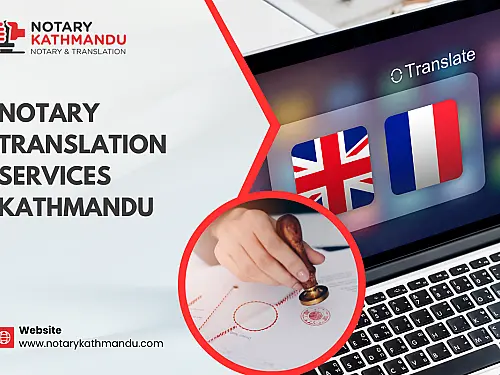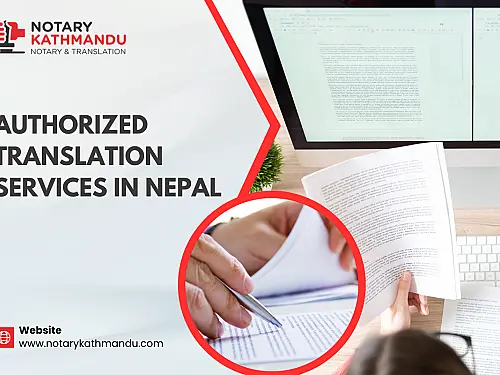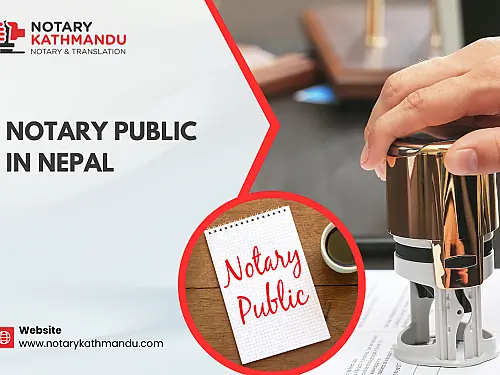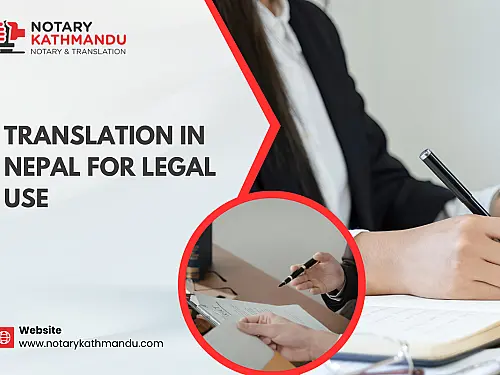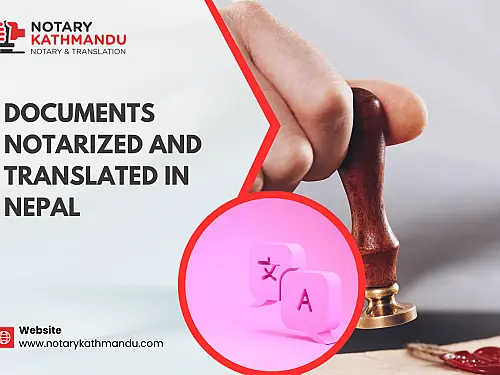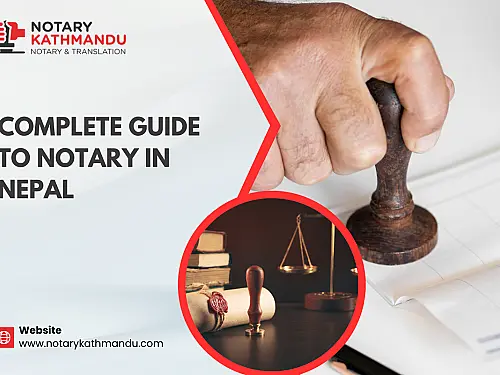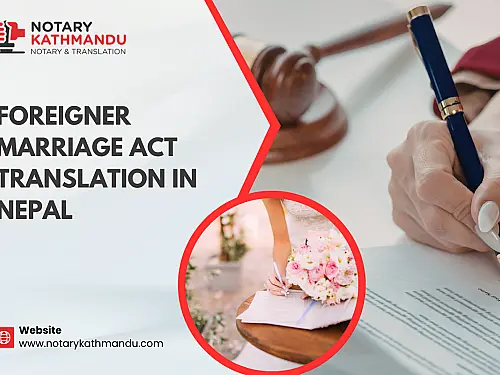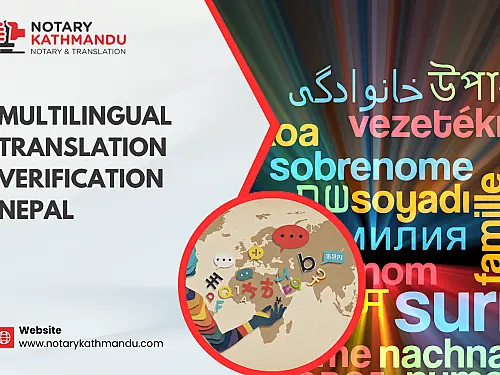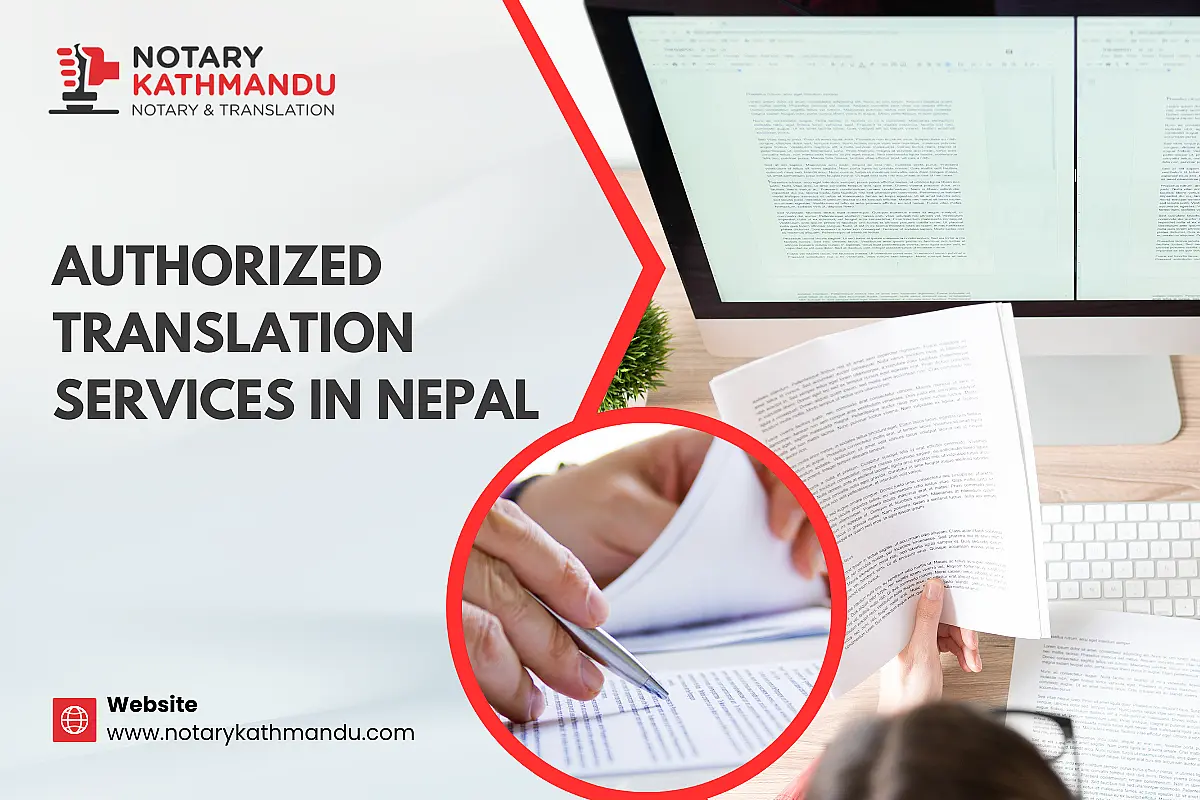
Table of Contents
If you’ve ever had to submit documents to an embassy, apply for a visa, or enroll in a university abroad, you’ve probably encountered one essential phrase: authorized translation. In Nepal, where a wide range of legal, academic, and personal documents flow between institutions at home and around the world, getting your documents translated properly isn’t just a formality—it’s often a requirement.
But what does “authorized” actually mean in the Nepali context? Who is allowed to translate documents officially? And why is it so important to get it done right?
Let’s walk you through the essentials—what it means, when you need it, and how to get it done the right way, so your paperwork doesn't end up lost in translation.
What Is an Authorized Translation in Nepal?
In Nepal, an authorized translation refers to a document translated from Nepali to English or from English to Nepali by a translator who holds a translation license issued by the Notary Public Council of Nepal.
Only Notary Publics who are registered and licensed as translators are legally permitted to provide authorized translations. These translations are recognized by courts, embassies, government bodies, universities, and other official institutions within Nepal and abroad.
It’s important to understand that this doesn’t apply to all languages—authorized translation in Nepal is strictly limited to English ↔ Nepali language pairs.
When Do You Need an Authorized Translation?
Here are common scenarios where people in Nepal require authorized translations:
Submitting visa or immigration documents
Applying to foreign universities
Registering a marriage or applying for a spouse visa
Court submissions or legal filings
Business or financial documents used abroad
Translating certificates or records for embassy use
If a document needs to be presented to a legal authority, there's a good chance it requires authorized translation.
Who Can Provide Authorized Translation?
Only translators licensed by the Notary Public Council are recognized as official or “authorized” translators in Nepal.
At Notary Kathmandu, our authorized translators are also registered notaries. This means we not only translate your documents accurately, but also certify and notarize them in one seamless process—ensuring full legal validity.
Learn more about this service here:
https://notarykathmandu.com/services/documents-translation-in-nepal
Types of Documents We Translate
We specialize in translating and certifying the following documents:
Birth, marriage, and death certificates
Citizenship and passport documents
Academic transcripts and degrees
Court orders, verdicts, and affidavits
Contracts and agreements
Power of Attorney (POA)
Police reports, character certificates
Land ownership or property transfer papers
Marriage registration and relationship verification documents
Whether you are preparing documents for court use, embassy submission, or academic enrollment, we’ve got you covered.
Certified vs Authorized Translation: What’s the Difference?
In Nepal:
Authorized translation is conducted by a licensed translator (from Notary Public Council), valid only for English to Nepali or Nepali to English.
Certified translation may be used for other languages (e.g. French, Arabic, Chinese), but does not hold the same official recognition for legal proceedings unless explicitly accepted by the receiving institution.
So if you're dealing with Nepali ↔ English documents for legal or government purposes—authorized translation is the only acceptable option.
For Embassies, Immigration, and Legal Matters
Many embassies and immigration offices require documents to be officially translated and notarized.
We provide authorized translations for:
Visa applications (student, work, spouse)
Embassy document submissions
Immigration records
Academic documentation
Marriage and birth certificates for family reunification
Each translated document is accompanied by a certification letter and a notary seal, as required by law.
Translation for Court or Legal Use
Courts in Nepal mandate that foreign-language documents be translated into Nepali by an authorized translator.
Our translations for court include:
Affidavits and self-declarations
Legal notices
Business contracts
POA and dispute documents
Case-related certificates or evidence
Every document is legally valid and ready for court use.
Academic Translation for University Admissions
Authorized translation is also required for students applying to universities abroad when their documents are originally in Nepali.
Documents we help translate include:
Academic transcripts
Degree and mark sheets
Letters of recommendation
Statements of purpose
Citizenship and birth certificates
We make sure each document is presented in the exact format and language required by universities and scholarship programs.
How to Get an Authorized Translation in Nepal
Here’s what to look for when choosing a translation provider:
Translator must be licensed by the Notary Public Council
Should offer Nepali to English or English to Nepali only
Must provide a signed certification letter with the translation
Should include notarization if required
At Notary Kathmandu, we meet all these requirements. Our translators are licensed, experienced, and ensure your translations are accepted everywhere—from Nepalese courts to international embassies.
Online Submission: Translate From Anywhere
No matter where you are—in Nepal or abroad—you can get your documents translated remotely.
How It Works:
Send scans or photos via email, WhatsApp, or Viber
We review and confirm the requirements
We translate and certify your documents
You receive a scanned certified copy
Choose pickup or courier delivery for the hard copy
Fast, legal, and reliable.
Contact Information
Office: Ekta Marg, Ward No: 29, Anamnagar, Kathmandu, Nepal
Email: info@notarykathmandu.com
Phone/WhatsApp/Viber: +977 9841242647
Common Mistakes to Avoid
Using general translators not licensed by the Notary Public Council
Assuming certified translation is the same as authorized translation
Forgetting to get notarization if required by the embassy or court
Submitting incomplete or poorly formatted files
Get it done right the first time—consult with us before submitting any official paperwork.
FAQs
Who is authorized to translate documents in Nepal?
Only translators licensed by the Notary Public Council can do official English ↔ Nepali translations.
Do embassies accept authorized translations?
Yes, especially when notarized by a registered notary public.
Can I send documents online for translation?
Yes. We accept submissions via email, WhatsApp, or Viber.
Are your translations accepted in court?
Absolutely. Our translations are recognized by all legal institutions in Nepal.
What if I need to translate another language like Arabic or French?
We offer certified (but not authorized) translations for other languages. These may not be valid in court but are often acceptable for embassy or academic use.
Final Thoughts
In Nepal, authorized translation isn't just a label—it’s a legal requirement. If your document is in English or Nepali and needs to be submitted to a court, embassy, or government agency, make sure it’s translated by a licensed translator.
At Notary Kathmandu, we provide authorized translations backed by legal expertise and official certification. We take care of everything—from translation to notarization—under one roof.
This article is for informational purposes only and does not constitute legal advice, advertisement, or solicitation. Notary Kathmandu and its team are not liable for any consequences arising from reliance on this information. For legal advice, please contact us directly.

